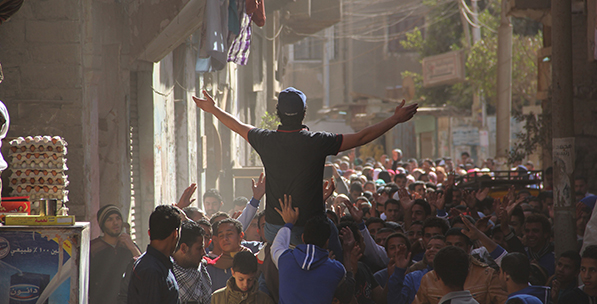Egypt represents the heart of the Arab world. The country has the potential to create new regional trends in terms of the balance of power in the Middle East and the transformation of Islamic movements. Last Thursday night, 42 members of the security forces perished in the Sinai as authorities cracked down on protestors marking the anniversary of the Tahrir Revolution. While the Muslim Brotherhood publicly denounced all forms of violence, it was Ansar Bait al-Maqdis, an ISIS affiliate in the peninsula that claimed the attack. Around the same time, the government of Gen. Abdel-Fattah el-Sissi declared the Izz ad-Din al-Qassam Brigades, the military wing of Hamas, a terrorist group.
The abovementioned developments established that the el-Sissi administration remains determined to radicalize and terrorize the social base of the Muslim Brotherhood, an organization it recognizes as a terrorist group. At this point, the Brotherhood faces greater pressure than it did under Gamal Abdel Nasser in the mid-1950s. In light of the language used in media outlets affiliated with the organization, it is safe to assume that the Brotherhood leadership has a hard time keeping their supporters away from violence.
Today, there are two options available to the Muslim Brotherhood: There is a chance that the organization could fall prey to the el-Sissi administration's strategy and opt for armed struggle - which would irreversibly place a heavy burden on the Brotherhood. Such a development, furthermore, would effectively shut the door on a process of democratic transformation that could set an example for the broader region.
The second roadmap requires the Brotherhood to carefully observe changes in the regional balance of power and play ball on the court of democratic politics. In other words, the movement will have to succeed as an opposition group where it failed as Egypt's ruling party - and respect the rules of the game. Under Mohammed Morsi, the Muslim Brotherhood's rigid ideology made it impossible for the movement to triumph in the power struggle and failed to prevent the military coup despite warnings. With Jordanian officials complaining about "the Ikhwan Crescent" and Israeli arguments about "the Ikhwan Spring" gaining traction in Washington, the Brotherhood lost touch with its supporters in the United States.
Meanwhile, Saudi Arabia threw its weight behind the UAE's anti-Ikhwan campaign to lay a regionwide siege on the Muslim Brotherhood - which, for the record, has a slim chance of survival in the long run. Appointments made by King Salman, the recently-anointed ruler of Saudi Arabia, strongly indicate that the country might seek to reform its foreign policy. Deputy crown prince Muhammad bin Nayef taking over as the chief Saudi official on political and security affairs and the removal of Bandar bin Sultan from the National Security Council attest to the above statement. Having lost ground to Tehran in Iraq, Lebanon and Yemen among other places, the Saudi government might soon seek reconciliation with the Muslim Brotherhood. The growing threat of radical organizations, in the same vein, is likely to push Riyadh in the same direction.
Saudi Arabia's King Salman might seek to reform his country's relations with the Muslim Brotherhood in order to get out of the corner - which would translate into a weaker anti-Ikhwan camp and the disintegration of the UAE-Israel partnership as well as trigger a process of normalization in Egypt. There is a chance that Washington policymakers will be amenable to the idea that radical groups such as ISIS and al-Qaida will only grow stronger unless the Muslim Brotherhood will be allowed to participate in the political process. Keeping the possibility of change in mind, the movement will have to avoid armed struggle at all costs - which is why the greatest challenge before the Brotherhood is to fall prey to the ongoing efforts of Gen. el-Sissi and his regional associates to radicalize its supporters. The regionwide siege simply cannot last. In this sense, the Muslim









